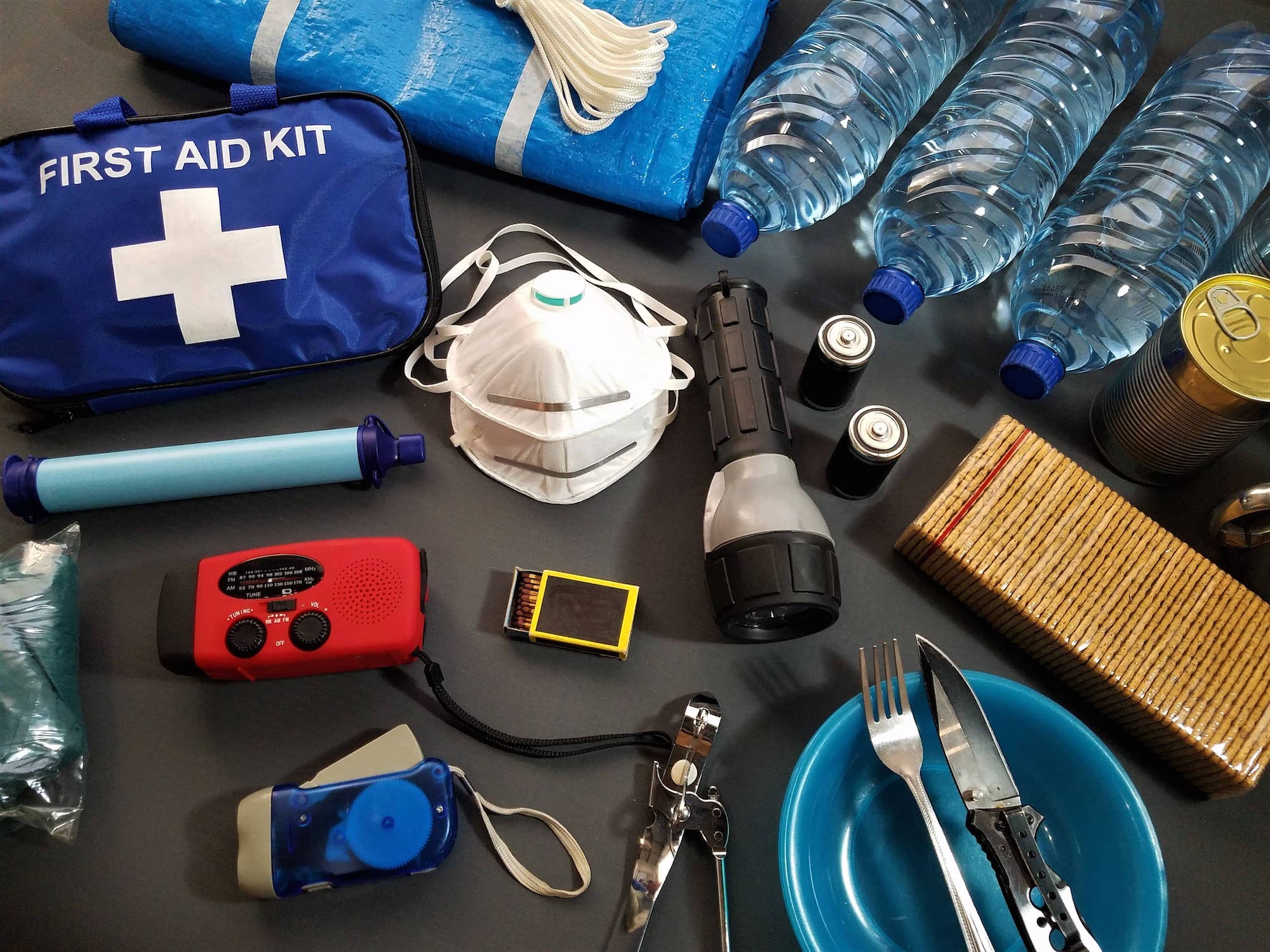
27 Jun Emergency Preparedness for Condo Dwellers: A Quick Guide

Sure, some emergencies we might not have control over. Most emergencies in Toronto are simple to prepare for, and getting ready for the worst isn’t paranoid: it’s banking your thinking ahead of time for when you might need it most.
So in the event of a fire in your building, a multi-day power outage, or other emergencies, here’s a quick guide for being prepared.
Make sure you have the right emergency supplies
Do you have enough towels to block the seams of your front door in case there’s a fire in the hall? Think about what you might need in the event that your power goes off, in a case of a fire or flood, during a water cut, or to ride out a winter storm—and then go get it.
Candles or flashlights with a backup stock of batteries are great for power outages. A first-aid kit—not necessarily a formal packaged one, but the basics you need to treat an injury—is always an important thing to have. Portable battery chargers have come down in price enough that they’re currently quite cheap and can keep your cellphone running for days even if there’s no power in your unit to charge it—which means keeping up with friends, relatives, and the news.
If you use regular medications, try to habitually refill your prescriptions with a few days’ buffer, to make sure you don’t run out of important pills during the kind of weather emergency that makes staying in a much better idea. And try to keep a few days’ worths of food that can be eaten without refrigeration or stove cooking on hand.
If you have hardwired C02 and carbon monoxide detectors, great—but they won’t work if the power’s down. Make sure you have enough of the right batteries to keep the battery backup option working and check them regularly to make sure those batteries are still working away inside.
Also important: A few large jugs that will hold drinking water. If you’re living in a high-rise condo unit, the pumps that bring your tap water up to the twenty-first floor will likely be affected by a power outage. If the weather’s looking bad, get your pioneer on and fill the bathtub, your water jugs, and a pot or two, and you’ll save yourself the bad-weather trip for bottled water.
Know your condo’s emergency plan
Does your condo have an emergency plan? Find out, and if so, get your hands on a copy of it. Not all buildings have comprehensive emergency responses—they’re set by the individual condo boards rather than required by law—but knowing what the procedure is puts you one step ahead.
If your condo does have a plan, participate in any practice drills, fire drills, or other events they hold, and know your floor warden by sight. It’s kind of easy to be too-cool-for-school when it comes to fire drills and alarm testing, especially if you’re in the middle of something, but: Take them seriously. It’s five minutes of your time, and in the event, you wake up at three a.m. smelling smoke, it’ll be a great help to have those reflexes baked in.
Build your own emergency plan for your condo
If your condo building doesn’t have an emergency plan—and you’re not inclined to pitch one to them, which is always a great idea—it’s not too hard to build your own.
Start with emergency exit routes: If you need to get out of your unit, how would you do it? Since elevators require power to operate—and units on high floors can’t rely on them during heavy weather—locate the stairwells, emergency exits, and alternate routes to get from your unit to the ground. Figure out two to three routes from your door to the outdoors, in case one is blocked in the event of a fire. The Ministry of Community Safety rather strongly discourages using an elevator if the fire alarm’s ringing, and for good reasons, so assume you’ll be taking the stairs.
Secondly, make a list—if your building doesn’t provide one—of important emergency numbers, or property managers’ numbers to contact in case something goes wrong. Tack that up in a highly visible place—your fridge is a great choice—so that if problems arise, you can get in touch with emergency services, your concierge desk, your property manager’s emergency maintenance line, or whoever else might be appropriate to the task.
Inside your unit, important things to locate for your emergency plan are your fire extinguisher, your water shutoff valve—if it’s in your unit—and your electrical panel. Being able to go right to one of these can short-circuit an emergency before it has a chance to, well, emerge.
If you must leave the condo building during an emergency
In case you do have to bail on your unit for a while so that an emergency can be contained, make sure you have the following:
- A kit with any important medications, toiletries, and a change of clothes;
- Your important documents, such as passports, health cards, photo ID, birth certificates, and so forth;
- Your cell phone and a portable battery or charger;
- Ready cash, in the case of credit cards, is a no-go.
Turn off any appliances or lights before leaving your unit, and make sure your door is locked.
RELATED: Five Ways to Maintain Your Investment Condo’s Value
Best of luck, and remember: One small preparedness adventure might be goofy, but it also might save your life.
If you are a real estate investor looking to turn your condo rental in Toronto into a passive income on a monthly basis, contact Del Condominium Rentals today.


Sorry, the comment form is closed at this time.